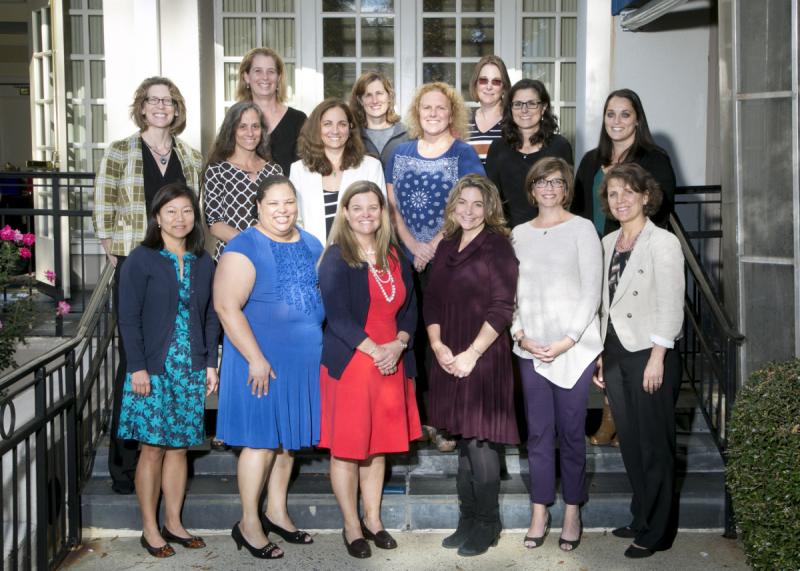
Faculty are among a school’s most important asset, and their skill at leading others is critical for a healthy and successful environment. That’s why the Duke University School of Medicine is committed to programming that develops leadership skills in its faculty. To do so, the Office for Faculty manages a number of opportunities for leadership development. One such program recently worked with the Social Science Research Institute (SSRI) to evaluate its impact.
The ALICE Program — Academic Leadership, Innovation, and Collaborative Engagement — is aimed at mid-career women faculty in the School of Medicine. It provides structured opportunities for leadership skill development, personal reflection and goal setting, peer mentoring, and structured 360 feedback for program participants.
Facilitated by the Office for Faculty, under the direction of Vice Dean for Faculty Ann Brown, MD, MHS, the ALICE Program hosted 14 mid-career women faculty in the School of Medicine in 2016, its inaugural year.
“We’re particularly aiming for people who want to go on to take institutional leadership roles like division chief, center director, or department chair at some point in the future,” Brown said. “We’re helping them build the skills that prepare them for those positions.”
With programming completed for the first round of participants, Brown sought out a relationship with experts in evaluation to better understand the impact of the program, what was succeeding, and where it could benefit from insight-backed improvements.
[video:https://youtu.be/-60gMV3o7Mg]
Jessica Sperling, SSRI’s manager of Evaluation and Engagement came highly recommended by Amy Murtha MD, Director of the BIRCWH Program, a previous evaluation client. Sperling also worked with Megan Gray, SSRI’s project associate in Evaluation and Engagement.
But it wasn’t solely their work that informed the final report. Sperling described her methods as collaborative, not just encouraging client participation, but relying on it for feedback and perspective. Jessica Womack, faculty development coordinator in the Office for Faculty also worked with Brown, Sperling, and Gray during this process.
“We worked in close partnership with them as we designed and implemented the evaluation,” Sperling said. “This benefitted the project itself, given their contextual knowledge, and it helped ensure that results would be meaningful from a program perspective.”
Of the 14 program participants, 10 were able to provide feedback in focus groups designed to evaluate the program.
“We got a lot of feedback from the group formally and informally, but we felt like it was important, and Jessica [Sperling] felt like it was important, to have the focus groups be separate so it could be a space where they could provide open and frank feedback with a third party,” Brown said.
The process helped Brown and Womack see specific areas that were succeeding and emphasize those in future iterations of the program.
For instance, the evaluation highlighted how the negotiation workshop, a half-day spent with a national expert in conflict management and negotiation, was the most valuable session for the program participants.
The speaker is a lawyer by trade who works as a participant in and consultant for academic medical centers for many years. Her content was tailored to the academic medical environment and also addressed potential gender differences in negotiation and conflict management.
Knowing these insights, hearing the ways in which the program was successful, and likewise the ways it could be more successful was a productive exercise for Womack and Brown as they shape future programming.
“It was incredibly useful,” Womack said. “The report that [Sperling and Gray] put together was so useful in understanding the program and which elements of it were most impactful, and also uncovering some of the unexpected outcomes — that was something that was very rich in her report that we might not have gotten at otherwise.”
“It’s a very important service,” Brown agreed. “I’m seeing this groundswell of other programs wanting to use this service as well and hope that the SSRI evaluation team continues to partner with us on next steps for ALICE, and on our other faculty development programs.”
Originally published by the Duke Social Sciences Research Institute